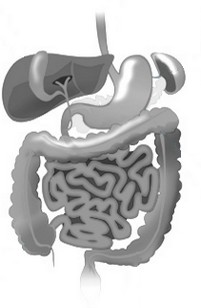Hemorrhoids
 Definition
Definition
Hemorrhoids - a minor condition - are usually found in the rectum and anus walls. These are swollen tissues, caused by constant pressure on the anal or rectal veins due to intense defecation efforts. But constipation, diarrhea, pregnancy, obesity, low-fibre diet, anal sex can also be the cause.
There are two types of hemorrhoids: external and internal. The former form under the skin at the entrance to the anus and can be "thrombosed", i.e. a clot has formed. Internal hemorrhoids are located in the rectum and are classified into four stages according to their severity :
1 - Hemorrhoids are not mobile, but prominent ;
2 - the prolapse is spontaneously reducible, i.e. the hemorrhoids protrude during the passage of the stool, then retract ;
3- the prolapse is reducible with the finger, i. e. they must be replaced manually ;
4- the prolapse is non-reducible, i.e. hemorrhoids do not retract.
Epidemiological data
This condition affects 25 to 40% of adults. They can occur at any age, but it is the elderly who suffer most. Among young people, it is mainly pregnant women who may be affected.
Symptoms of the disease
The external hemorrhoids : they cause itching, severe pain, a burning sensation and, sometimes, bleeding during the emission of stools or the formation of small blood clots.
The internal hemorrhoids : they are manifested by painless emissions of small amounts of blood, but they can also cause intense anal pain.
Treatments
In all cases, it is necessary to recommend local hygiene with neutral soap, but also food hygiene - avoid spices, alcohol, stimulants - and fight against sedentary lifestyles.